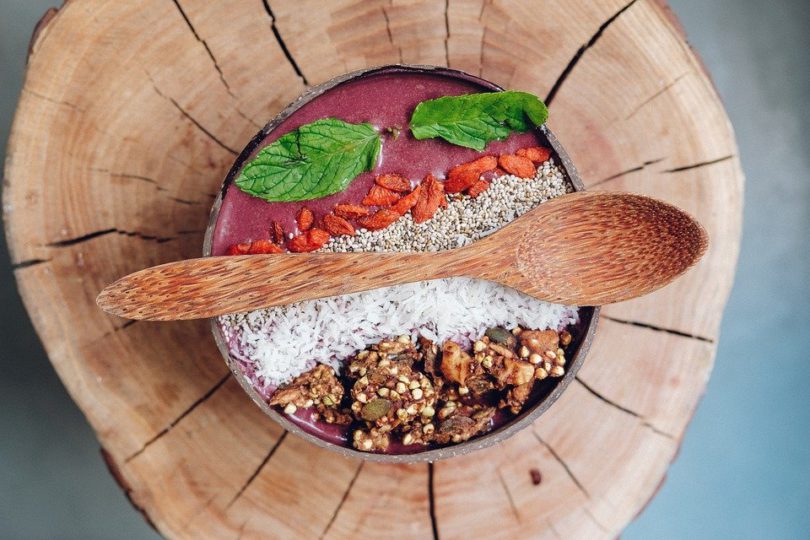What are superfoods and how the pescetarian differs from the flexitarian. And no, they are not alien races from Star Wars or Star Trek.
- Gluten-Free Diet
Gluten is a protein found in wheat, rye, and other grains. Initially, a gluten-free diet was only indicated for people suffering from a rare disease such as celiac disease. With it, the human body cannot digest foods containing gluten: baked goods, cereals, chips, pasta, and breaded meat. But healthy people also sometimes adhere to such dietary restrictions to lose weight, get rid of skin problems, and improve digestion. Now, this diet has gained popularity because it excludes eating junk food. Followers of a gluten-free diet often take fragrant rice as the basis of their food, which also is very popular. Also, xanthan gum does not contain gluten but replaces all its functions. In order not to use gluten flour, you can use gram flour, which is gluten-free and is often used in Indian cuisine.
- Superfoods
Superfoods is a marketing term for foods and drinks that are rich in nutrients. This food group includes goji berries, black garlic, kalamansi, queen olives, virgin coconut oil, nuts, and blueberries. They are rich in minerals, vitamins and beneficial fatty acids. This is confirmed by scientific research. For example, regular consumption of black garlic and amchoor reduces the risk of heart disease. The addition of turmeric to food prevents cancer and diabetes, and chia seeds are rich in calcium, which is essential for bone formation and the normal functioning of the nervous system.
- Lactose-Free Diet
A lactose-free diet is a nutritional diet in which a person completely excludes lactose from the diet. It is a complex carbohydrate found in dairy products. It is also called milk sugar. The enzyme lactase handles the breakdown of lactose in the body. If for various reasons, it is inactive, milk sugar is not absorbed, which leads to digestive disorders.
Research into lactose intolerance began in the 1960s. Soon, a diet was developed for people with this disease that excludes foods with milk sugar. But now there are more and more adherents of this style of food. With a lactose-free diet, some try to heal acne and improve skin conditions, others just love the taste of herbal drinks.
- Artificial Meat
American startup Beyond Meat and Impossible Foods is already producing artificial burger meat that tastes and smells no different from the real thing. It is based on potatoes, wheat and genetically modified soy sauce. Such products are suitable for everyone who loves the taste of meat, but cannot eat it. By the way, some fast-food chains and restaurants already offer dishes with artificial meat.
- Partial Refusal Of Sugar
It is impossible and unnecessary to completely abandon sugar. But the additional sugar is harmful for the body, so it is better to limit its use. According to the recommendations of the World Health Organization, the proportion of added sugar in the diet should not exceed 10% of the daily calories. To comply with this norm, you will have to drink tea and coffee without sugar, give up sweet soda and do not eat sweets. There are useful sweets that still have sugar in their composition but are not so harmful. For example, Lamingtons. These are delicious snacks from Australia that have already gained many fans in the USA and comprise coconut flakes and tender biscuits. And of course, all sweet teeth will like Icelandic skyr. It is a traditional Irish dairy product that comes in many flavors and resembles a cross between sour cream and curd. It has been a part of Irish culture for over 1000 years.
- Pescetarianism
A simpler and more gentle diet for those who consider vegetarianism too strict. With pescetarianism, it is permissible to eat fish, oysters and other seafood. The meat of warm-blooded animals is prohibited. Fish will carry omega-3 fatty acids, which reduce the risk of cerebrovascular disease.
But pescetarianism also has its drawbacks. Fish meat can contain toxins. For example, mercury. Because of this, an excessive passion for seafood can negatively affect the body.
- Flexitarianism
Adherents of this style of eating eat meat from time to time. Many people do not even suspect that, in fact, they are following such a fashionable trend. If you only allow yourself a juicy steak once a month, then congratulations — you can proudly call yourself a flexitarian.
The advantages of such a diet are obvious: a person receives a maximum of nutrients and does not completely abandon animal protein. But there are also disadvantages. For example, if you haven’t touched meat for two months, and then suddenly ate a steak, then such “contrasts” will worsen the condition of the skin and badly affect the health of the stomach.

